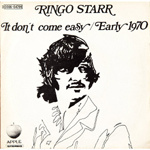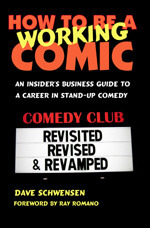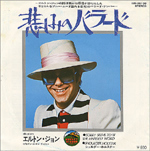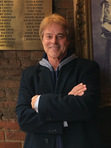Dave Schwensen's Blog, page 24
March 22, 2014
#305 – Aba Daba Honeymoon
I wake up with music. It’s all explained in the About Dream Songs link above.
*
#305 – Aba Daba Honeymoon by Debbie Reynolds and Carlton Carpenter
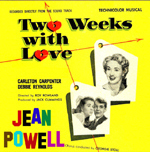 First off, I warned you. If you had checked out the About Dream Songs link you’d already know these articles are the result of an experiment and I can’t dictate what songs I wake up to. It just happens. This song, Aba Daba Honeymoon, is a perfect example.
First off, I warned you. If you had checked out the About Dream Songs link you’d already know these articles are the result of an experiment and I can’t dictate what songs I wake up to. It just happens. This song, Aba Daba Honeymoon, is a perfect example.
It’s also a great example of being born a baby boomer. Follow me on this one…
I don’t think I’m goi...
March 15, 2014
#306 – Let’s Stay Together
I wake up with music. It’s all explained in the About Dream Songs link above.
*
#306 – Let’s Stay Together by Al Green
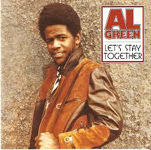 Though I always refer to him now as The Reverend Al Green, he didn’t become an ordained pastor until about five years after this song was riding the top of the charts in 1971-72. His focus changed from soul to gospel after couple of scary life-changing events, which happens to be a coincidence I personally share with this song. Now it seems funny, but at the time… not so much.
Though I always refer to him now as The Reverend Al Green, he didn’t become an ordained pastor until about five years after this song was riding the top of the charts in 1971-72. His focus changed from soul to gospel after couple of scary life-changing events, which happens to be a coincidence I personally share with this song. Now it seems funny, but at the time… not so much.
Al...
March 8, 2014
#307 – It Don’t Come Easy
I wake up with music. It’s all explained in the About Dream Songs link above.
*
#307 – It Don’t Come Easy by Ringo Starr
This April 1971 song didn’t officially signal the break-up of The Beatles. That had happened a year earlier with the April 1970 release of Paul McCartney’s solo album, McCartney. But It Don’t Come Easy made it very clear to those of us hoping for a reunion that something was definitely wrong in the world of Fab. With major behind the scenes and on vinyl help from George Harris...
March 3, 2014
Opener vs. Feature vs. Headliner
Hey Dave – I was reading your newsletter today and I’m wondering… What’s the difference between a Headliner vs. a Feature Act? Thanks – DS
Hey DS – Money. Next question?!
Okay… okay… sorry for trying to be funny. That’s actually a good question for comics starting out AND in certain areas of the comedy scene. And the above is only part of the answer. There’s more to it, so let me explain with a true confession.

A mic, spotlight
and brick wall
When I worked in the comedy biz in NYC I didn’t know the difference either. In fact, there was never even a reason to bring up the term feature act. The comics worked their way through the open-mics and auditioned for the major clubs in the city. You can Google for a list – but off the top of my head from those days we’re talking about The Original Improv, Catch A Rising Star, The Comic Strip, Caroline’s, Dangerfields’, NY Comedy Club and Stand-Up NY.
I’m sorry if I forgot anyone…
I was manager of The Improv, which in NYC (like the others) was a showcase club. Yes, most of our audiences were made up of locals and tourists (like the others) but comics knew it was an important place to be seen. On any given night there could be agents, managers, producers and casting directors watching. We also scheduled showcases (auditions) for The Tonight Show, The Letterman Show, HBO, MTV – and plenty of others.
As I said – it was a good place to be seen on stage.
—————————————————–
How To Be A Working Corporate Comedian
An 8-week online course – CLICK HERE for details
—————————————————–
Non-industry nights were Fridays and Saturdays. This means the audiences (2 shows Friday and 3 on Saturday) were pretty much local comedy fans and tourists. Instead of going to a movie, they could see a live show. So the comics were booked in advance and mostly “A-Acts.” In other words, they were our headliners and the industry people already knew who they were. They had agents, television credits, etc…
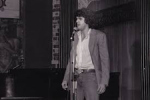
Showcasing?
Let’s put it this way. You, me and everyone on the planet earth know who Jay Leno is. So there’s no reason for him to showcase for industry exes. Just call his agent if you have a project in mind.
Make sense? Okay…
Sunday through Thursday were showcase nights. There would be several A-Acts doing 20 minute sets to guarantee good shows. But this is also when industry exes and audiences would see the up-and-coming comics. They would be given anywhere from 5 to 10 minute sets and we could have as many as 10 to 15 comics go on stage in one night. Since we could stay open until 4 am the length of the show depended on how many people were still in the audience.
So what I’m trying to say is in NYC (at that time anyway) we didn’t deal with or use the term feature acts. They were either A-Acts or working their way toward becoming an A-Act.
—————————————————————-
Sign up now through this LINK for Dave’s free weekly newsletter and receive 15% off the Amazon.com list price for How To Be A Working Comic!
—————————————————————-
The difference in terms happened when they worked the road – clubs outside of NYC. And since that wasn’t on my personal radar at the time, I never dealt with it.
It wasn’t until I got to Los Angeles and started working for Budd Friedman that I learned about bookings in the other Improv comedy clubs. The venue on Melrose Avenue was a showcase club like NYC (and still a GREAT place to be seen), but the others Budd had across the country did shows with only three comedians.

The view from
9th Avenue
Only THREE comics?
Yeah – I was surprised too! My mindset was like the old New Yorker Magazine cover from 1976 – that was still a popular poster around Manhattan twenty years later (and probably still today). Basically, Manhattan residents could look west from 9th Avenue (BTW – The Improv was located just east of 9th Ave) and not really acknowledge anything until the Pacific Ocean.
Stuck up? Well, when everything you need is on one island it just becomes a way of life. But I regress…
Outside of NYC and LA, the clubs in other cities scheduled three comics – an opener (MC), feature (middle) and headliner (closer).
Every club I’ve ever worked at – including showcase clubs – has an MC. That’s the comic who opens the show and warms up the audience. They’re also the ones required to make the announcements. You know – tell the audience about drink specials, future shows, sponsors, etc…
The headliner closes the show. That’s the star act – the comic the club is advertising and the one most of the audience is paying to see.
The feature act? You can guess – right? That’s the comic in the middle – between the opener and headliner. They do more time on stage than the opener – and less than the headliner.
And that takes us back to my first answer – money. The feature act is paid more than the opener and less than the headliner. And there’s never a mix-up over that cuz it’s in the contracts, which is another matter I don’t remember dealing with in showcase clubs. In NYC you showed up, did your set, got cab fare and a sandwich – and thanked the club when you were on The Tonight Show.
——————————————————————————————-
Dave Schwensen is the author of How To Be A Working Comic: An Insider’s Business Guide To A Career In Stand-Up Comedy, Comedy FAQs And Answers: How The Stand-Up Biz Really Works, and Comedy Workshop: Creating & Writing Comedy Material for Comedians & Humorous Speakers.
For details about upcoming comedy workshops at the Chicago and Cleveland Improv Comedy Clubs, and private coaching by phone or via Skype visit www.TheComedyBook.com
NEW – How To Be A Working Corporate Comic an 8-week online coaching program. For information visit this LINK.
For info about this free weekly newsletter visit this LINK.
Copyright 2014 – North Shore Publishing


March 2, 2014
#308 – Sorry Seems To Be The Hardest Word
I wake up with music. It’s all explained in the About Dream Songs link above.
*
#308 – Sorry Seems To Be The Hardest Word by Elton John
Even harder to say
in Japanese!
I wasn’t into this song when it first came out in November 1976. There’s no real reason why since now I consider it to be one of Elton John’s best, but at the time it really didn’t register on my personal musical hit parade. Electric Light Orchestra and The Eagles were using up most of the spins on my turntable and a lot of us were...
February 24, 2014
Personal request from headliner to open shows
Hey Dave – After a recent showcase the headliner came up to me and asked if I’d be willing to open for him on his upcoming shows. What’s the best way to approach being a featured comic or host at this (major) club? I have the manager’s email and a DVD of the showcase set as a sample of what I can do. I also have a headshot and resume and can create samples on DVD and YouTube. Sincerely – L.S.
Hey L.S. – That’s great news! As I say in way too many articles, that’s your Golden Ticket. A personal recommendation from a headlining comic is ALWAYS better than trying to do it all on your own through blind mailings and emails, or hanging out at the club (topics we’ve talked about in the last few newsletters).

You got it, dude.
Of course I’d never discourage comics or humorous speakers from promoting themselves with good business methods (promo, website, postcards, etc…). But when you have someone that actually works in the club as a headliner putting in the good word for you, it’s always easier to at least be seen (given a showcase).
And if you already have a track record – meaning decent performing credits, you might just end up with a paid booking. I’ve seen that happen a lot, meaning a good headliner will have his own opening and feature acts on the road with him. Clubs book the “package” – which makes the talent booker’s life a bit easier.
My advice is to stay in touch with the headliner about this. Ask him exactly what he has in mind. For instance, would it just be for his next show at this (major) club or (if doing a weekend) opening all his shows? Does he want you to go on the road and open for a string of clubs for x-number of weeks?
By the way, you should be able to find out what he has on the schedule by checking out his website. Most comics keep their online calendars updated not only for talent bookers, but also their fans. I always talk a lot about promoting and there are more than a few (smart!) comics who buy advertisements on Facebook and LinkedIn (more about that technique in the updated version of How To Be A Working Comic) aimed at the cities / areas they’re playing a week or two in advance. Clubs love it when comics help promote their own shows. And since (smart!) comics also attach their websites to these ads to help build audience interest through their videos and credits, you can check out their touring schedule.
—————————————————————-
Sign up now through this LINK for Dave’s free weekly newsletter and receive 15% off the Amazon.com list price for How To Be A Working Comic!
—————————————————————-
Preferably you’ll want the headliner to contact the club booker or manager requesting you open his shows. He can tell them to expect your call or email, or just call you back to say it’s a done deal. Either way, he has to be the one to do this.
The headliner (or his agent) needs to personally mention this to the club booker. That’s what will cut through all the red tape. All it takes is one phone call from him or his agent.

Oh my gawd…
that’s such a lie!
That’s important because otherwise the booker might not believe you if you’re the only one calling to set this up. And I don’t mean to single out just YOU – it’s like that with all comics they don’t know. You’d be surprised how many comics “drop names” but don’t actually have that comic’s recommendation. I’ve had that happen to me in the past and it never works in their favor.
I’m sure there are more than a few club bookers who can relate to that last statement. Also some of the comics who’ve tried it.
If for some reason the headliner doesn’t follow through on this or just suggests you make the contact, then go to Plan B. Send an email to the club booker that the headliner talked with you about being the opening act for his upcoming shows. Ask for the “correct way” for you to submit a video and promo. Hopefully the booker will request you send a link to your website and video.
—————————————————–
How To Be A Working Corporate Comedian
An 8-week online course – CLICK HERE for details
—————————————————–
If you don’t hear back, wait a couple weeks and send a reminder. The goal is to stay in touch without being a pain in the you-know-what. Know what I mean?
But again, I’ve talked about how to promote and market yourself via emails, postcards and phone calls in past FAQs And Answers so no need to repeat it all here. Just scroll through the topics listed on the right side of this page for help. There are also great marketing suggestions in How To Be A Working Comic (yes – another book plug!).
But again, if the headliner puts in a personal request for you to open his shows, chances are everything should work in your favor. This is your Golden Ticket – so use it.
——————————————————————————————-
Dave Schwensen is the author of How To Be A Working Comic: An Insider’s Business Guide To A Career In Stand-Up Comedy, Comedy FAQs And Answers: How The Stand-Up Biz Really Works, and Comedy Workshop: Creating & Writing Comedy Material for Comedians & Humorous Speakers.
For details about upcoming comedy workshops at the Chicago and Cleveland Improv Comedy Clubs, and private coaching by phone or via Skype visit www.TheComedyBook.com
NEW – How To Be A Working Corporate Comic an 8-week online coaching program. For information visit this LINK.
For info about this free weekly newsletter visit this LINK.
Copyright 2014 – North Shore Publishing


February 21, 2014
Bring On The Heat: The Top 3 Temperature Rising Classic Rock Songs
I’m freezing.
I wanna know, since when did the term Polar Vortex become part of our daily conversations? As Drew Carey once said on a subzero day as he stood on his front porch spraying an aerosol can in the air:
“Where’s that global warming when we need it?”
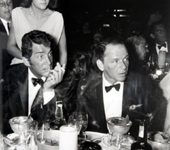
Wha’da’ya mean last call?
Are you talkin’ to me?
If you’re anywhere within a broadcast radius where TV weathermen deliver the line “chill factor” with all the seriousness of Frank Sinatra telling a bartender there’s no last call when he’s...
<!--[if gte mso 9]>February 17, 2014
Getting an MC gig at an “A-List” comedy club
Hey Dave – My goal for 2014 is to host a show at one of the top clubs (like The Improv). I have video that I can submit and if nothing else, it will be good to get some feedback and be told what I have to do to get work there. In saying that, do you know how to go about submitting videos to the clubs and what should accompany it, i.e. bio, pics, etc? If you know who the contacts for the club may be or how to find that info that would be great as well. Thanks for your continued support in the comedy scene and I hope you are well. Talk to you soon – CC
Hey CC – Thanks for the support and well wishes. In answer to both I can say I’m trying my best…
And another thanks for your question since it gives me a chance to combine the last two articles into a (hopefully) working answer. Make sense? Again, I’ll try my best…

Corporate Office Headquarters
Usually with the major clubs, the headliners and most features (middle acts) are booked through a corporate office. They have a talent coordinator who books all the clubs in their chain. Opening acts are mostly local or within driving distance and are booked by the club’s in house manager. The opening acts don’t get flown in or put up in five star hotels, if you know what I mean.
When you’re going for an opening (host / MC) spot at an “A-Room” (pick the top club in your area) it’s about the total package. Yeah, of course you have to be a good comic with experience. But you also have to show that in your submission to even be considered. These bookers are not going to hire someone who’s not ready to play their club. The audiences pay for and expect a professional comedy show. And even though the openers won’t have the television and/or film credits the headliners or some features have, audiences are also not paying big $$’s to watch an amateur night.
Know what I mean? You should have experience and a list of credits from playing smaller clubs first, before you approach the “big guys.”
I was on a panel at a comedy festival a few years ago with the manager of a major club and an owner of another. One of them – in a very polite way – talked about the smaller clubs being like the minor leagues. He was comparing it to baseball. Get your experience there first to prove you can do it before trying to move up to the major leagues.
Assuming you’ve done that – here’s a game plan for your question.
Last week I talked about doing “face time” (networking) in comedy clubs. Before that the topic was promotional material. Now it’s time to combine…
I suggest calling the club and asking the proper way to submit a video for a showcase (audition). The people answering the phones will know – because this is a question they get all the time from comedians. Follow what they say.
Based on the two major clubs in my area, there can be two different scenarios. One is doing face time. For instance, one of the clubs has a bringer showcase once a month. Bringer meaning you have to bring x-amount of paying audiences members to get stage time. I won’t discuss the pros and cons of that now, cuz I’ve also done that in past FAQs And Answers. Let’s just agree it is what it is – and the only way you’ll be seen on stage at this particular club.
—————————————————–
How To Be A Working Corporate Comedian
An 8-week online course – CLICK HERE for details
—————————————————–
Play the game (pay the admission for your friends if you have to) and get on stage. At least you’ll be seen by someone connected with the club. Afterward do some face time and network with whomever is in charge of the show. Ask them what your next step is (you asked about getting feedback so this is your opportunity) or how to be considered as an opening act during one of their regular shows.

Best Scenario
Who knows? They might offer you a gig based on your performance (best scenario), say you’re not ready (worst scenario), or ask you to send them a video for more review. That last one’s okay because you’re still in the game. It’s also what you’d have to do for the other club I’m thinking about anyway, so here’s how that’s gonna work…
Again, you might want to consider starting with some face time. Go to a show and keep an eye out for a manager. Another hint – from experience – do this on an “one-show night.” Fridays and Saturdays usually mean multiple shows in the major clubs and everything is more hectic. Go on a Wednesday, Thursday or Sunday and chances are better you’ll get a minute or two with the person in charge.
Then ask. What’s the best way to get a showcase or submit a video? And again from experience – because comics ask all the time – they’ll tell you. Follow what they say.
If the club doesn’t offer a showcase night, then drop off (if you’re local) or send a DVD. If they accept submissions via email, get the email address.
If you’re submitting a DVD include it with a hard-copy promo package (like described in my book How To Be A Working Comic). It includes a DVD, photo, resume and bio in a two-pocket folder. And don’t forget to include your contact info on everything.
—————————————————————-
Sign up now through this LINK for Dave’s free weekly newsletter and receive 15% off the Amazon.com list price for How To Be A Working Comic!
—————————————————————-
Some comics will tell you this is not necessary anymore since all the booker is interested in is your video. But here’s another hint from experience. To stand out from the crowd (and they get a lot of videos) you should make the extra effort. It makes you look more professional and that’s how you want them to see you.
Again – none of these top clubs are interested in hiring an amateur.
If they tell you to submit a video via email, send a link to your website that has a link to your video. Yeah, you can probably just email a link to your video on YouTube – if that’s really how you want to play this opportunity. But again, it won’t look as professional.
I’ve written before that I’ve talked with bookers from major clubs who won’t even consider hiring comics who don’t have a website dedicated to their comedy career. A Facebook page wouldn’t make the cut. But don’t let that throw you off your game! Websites are easy and inexpensive. Check out WordPress and some of the others available for this.

Did I really use a picture
of bells & whistles? Sorry…
And they’ll understand (they should) that you’re not a headliner or feature act because you’re asking for a showcase to be an opener. They shouldn’t expect all the “bells and whistles” of a big-time website. Keep it simple with the same info you’d put in a hard-copy promo pack. Since these are “A-Clubs” we’re talking about here, they will expect you to be further along in your career than doing open-mics and using a Facebook page as your business site.
If you don’t hear back from them, stay in touch without being a pain in the you-know-what. An email or postcard every couple weeks should work.
But again, networking REALLY helps. If you’re part of your area comedy scene you probably know some of the comics who open at these clubs. If you see them at the open-mics or some of the other clubs – and they like your sets (important to know first!) – ask if they can throw in a good word for you with the booker. As I’ve written in the past, a personal recommendation from someone who already works at the club can be your Golden Ticket. That can either get you a showcase or have your video watched a lot faster than anything I just mentioned above.
——————————————————————————————-
Dave Schwensen is the author of How To Be A Working Comic: An Insider’s Business Guide To A Career In Stand-Up Comedy, Comedy FAQs And Answers: How The Stand-Up Biz Really Works, and Comedy Workshop: Creating & Writing Comedy Material for Comedians & Humorous Speakers.
For details about upcoming comedy workshops at the Chicago and Cleveland Improv Comedy Clubs, and private coaching by phone or via Skype visit www.TheComedyBook.com
NEW – How To Be A Working Corporate Comic an 8-week online coaching program. For information visit this LINK.
For info about this free weekly newsletter visit this LINK.
Copyright 2014 – North Shore Publishing


February 13, 2014
#309 – Someday We’ll Be Together
I wake up with music. It’s all explained in the About Dream Songs link above.
*
#309 – Someday We’ll Be Together by Diana Ross & The Supremes
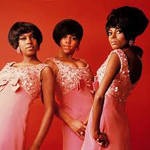
Dream Girls Supreme
Who are we talking about here? Who will be together someday? Are we talking about the break-up of a relationship with the door left open for reconciliation – or the break-up of The Supremes with Diana Ross telling the girls they’ll sing together again after she goes off and has a fabulous solo career?
If you want to talk about a double me...
February 10, 2014
Doing face time in comedy clubs for bookings
Hey Dave – Isn’t “face-time” (not the kind associated with Apple iPhones, etc) one of the most important parts of getting work hosting in comedy clubs? What I mean is, doesn’t it make a big difference in someone’s chances of being MC for a weekend (or more) when they frequent the club, chat up the staff and tip well, and demonstrate a willingness to do grunt work? I think that is universal. Didn’t you have a story about the guy who showed up outside a club and swept the sidewalk every day until they hired him inside and he then moved up the ranks? – DM
Hey DM – I’ve gotta be honest with you. This is not an easy question because there are a lot of buts and depends that will go into any answer – from anyone. I know from experience there are some comics and club owners who will agree with what I’m gonna say, and others who will grab a broom and tell me to get out of the way.

Face Time
But you know what? This is showbiz – which is an industry full of gimmicks. If you don’t believe me turn on the TV and the highest rated reality shows. You may not want to hang out in real life with duck callers, housewives and Bruce Jenner’s ex-family, but you have to admit they know how to bring attention to themselves.
So keeping that in mind, it’s not a bad idea to call attention to yourself by being seen around the clubs you want to play. To break into your local scene, you need to have the local bookers know who you are and that you’re a comic. The goal is to score an audition.
I’ve never heard of the guy who swept the sidewalk outside a club everyday and was rewarded with a paid MC (hosting) gig. It’s not a bad way to call attention to yourself – but if you do end up with an audition it will only pay off if you have the talent and experience to back it up. Otherwise the only winner will be the club owner with a clean sidewalk.
My first thought is that the time could be better spent getting stage experience somewhere else. Earn a reputation as a good comic and do some networking. It’s a lot easier to score a showcase when you have a track record and recommendations from other comics and bookers who’ve seen you on stage. When you have that going for you, there’s no need to bring a broom to the club.

Who gets the spot?
Showbiz has always been about being different and standing out from the crowd. If you have the experience and truly believe you’re ready to play the club and sweeping the sidewalk gets you noticed by the booker, who am I to put it down? That’s why a lot of new comics are willing to hand out flyers for stage time or line up friends and family for bringer shows. Sometimes you gotta do what you gotta do.
But your real question is about “face time.” That was always (and still is) a major networking opportunity and how a lot of newer comedians got on stage when I worked in NYC and LA. But I have to emphasize they were already experienced comics and not someone who thought keeping the sidewalk clean would be their best career move.
When comics were experienced and funny enough to start performing at a club like The Improv they still had to pass the audition. Working the door, bartending, or even sweeping the sidewalk could open the door, but didn’t guarantee future paid gigs. You had to prove – on stage – you could do it.
—————————————————–
How To Be A Working Corporate Comedian
An 8-week online course – CLICK HERE for details
—————————————————–
Even after someone passed the audition, there was no guarantee they’d get regular performing spots. They were on the club roster, which meant they were welcome to come in and “hang out at the bar” as a comic. Now if they wanted to sweep the sidewalk instead of sitting around – yeah, they’ll be noticed over the others. But if they hadn’t passed their audition, then chances are they’d still be sweeping when the show is ending.
But face time does count. For example…
During a week night in NYC we would schedule enough comedians to get us through until around midnight. If there was still an audience at that time (in NYC we could keep the shows going until 4 am as long as we had people in the showroom) then the manager would look around to see what comics were “hanging out.” They would make up the rest of the show until either the audience left or we hit last call.
That was face time and the manager / club booker already knew they were comedians. If they wanted to grab a broom and sweep up… well, thanks. But are you on the roster? Is there another comic who’s a regular performer at the club recommending you be given a shot? That’s the only way you were going to get on stage that night.
—————————————————————-
Sign up now through this LINK for Dave’s free weekly newsletter and receive 15% off the Amazon.com list price for How To Be A Working Comic!
—————————————————————-
Now I already know some comics and club owners will disagree and have examples to prove me wrong. I even have a story in one of my books from a favorite club owner who might trade performing spots for work around the club. So I’m not saying it won’t work, I’m just saying…
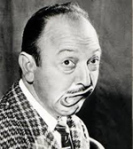
More Face Time
A great way to kill a show is by putting on someone – anyone – who doesn’t have experience and isn’t funny. That’s why clubs have auditions and already know who the comics are. Gimmicks like sweeping the sidewalk might get an audition, but the time could be better spent getting known as a good comedian – even if you have to perform somewhere else to make it happen. If you come in ready to knock everyone out with your talent, then you can get quality face time with the other comics “hanging out” instead of doing grunt work.
Your thoughts or experiences? Leave a comment below and I’ll pass it along in a future newsletter.
——————————————————————————————-
Dave Schwensen is the author of How To Be A Working Comic: An Insider’s Business Guide To A Career In Stand-Up Comedy, Comedy FAQs And Answers: How The Stand-Up Biz Really Works, and Comedy Workshop: Creating & Writing Comedy Material for Comedians & Humorous Speakers.
For details about upcoming comedy workshops at the Chicago and Cleveland Improv Comedy Clubs, and private coaching by phone or via Skype visit www.TheComedyBook.com
NEW – How To Be A Working Corporate Comic an 8-week online coaching program. For information visit this LINK.
For info about this free weekly newsletter visit this LINK.
Copyright 2014 – North Shore Publishing



